"As for now, the image of the empty churches, we have been confronted with in recent months, is a nightmare from which we can wake up. At the same time it should also be a warning sign that urges us to reflect about the future of the Church," said Szabolcs Koppány Hajdú, minister and dean from Lovasberény at the conference entitled Profession of Pastors in ordinary and extraordinary times. During the workshop co-hosted by the German Speaking Reformed Congregation and the Reformed Center for Cultural and Public Issues, participants discussed challenges and questions that the pandemic revealed.
"Let's have a word with each other: first of all let us listen to the Word of God with our minds and hearts, discern it in fraternal conversations," Gábor Lakatos, chief elder of the hosting congregation said during his words of greeting. Zoltán Balog, pastor of the congregation added that encounters are important so that we can become discerning and confessing disciples of Christ, and adjust our ministry to the standard of the Word of God.
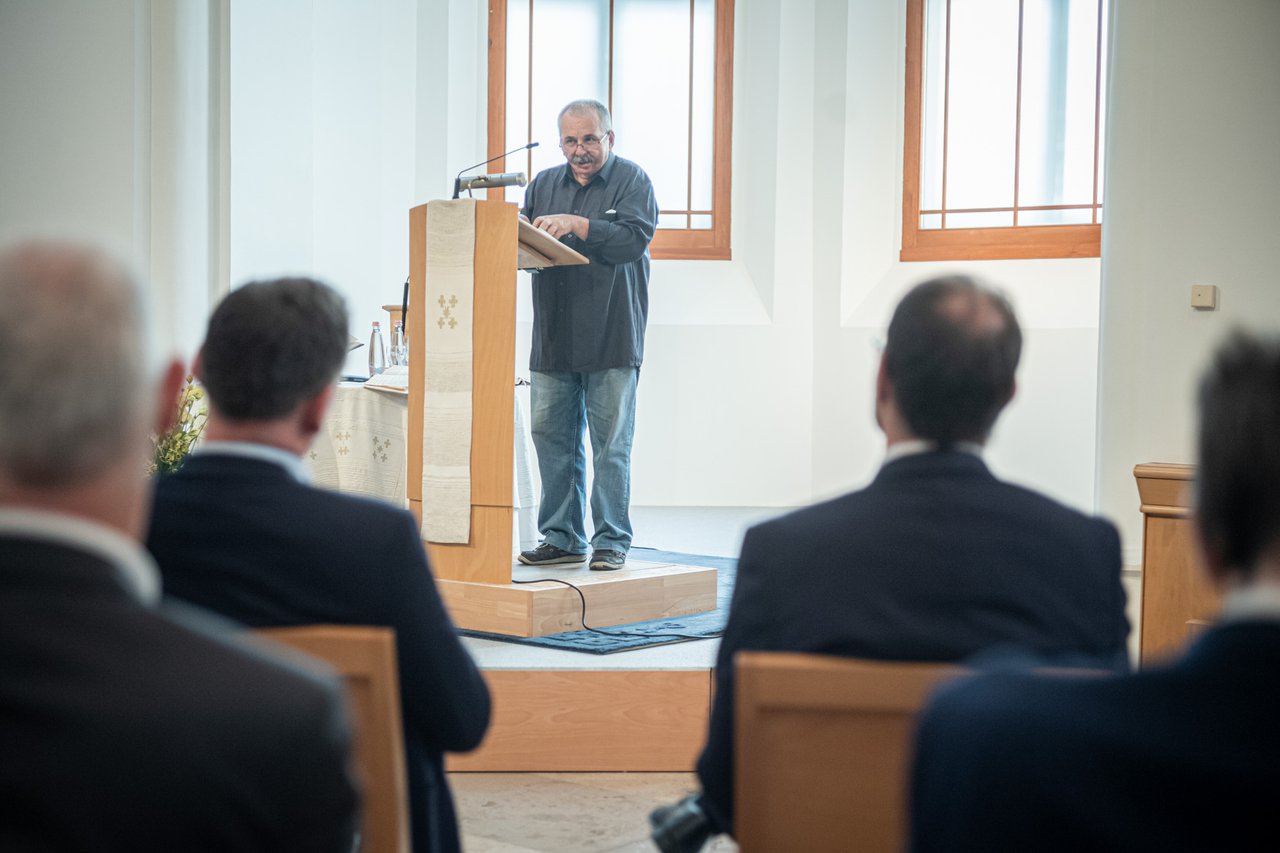
In his reflection, Péter Nagy, retired pastor of RCH reminded the participants that as Christians, we are called to discern together issues that are essential for all of us, while continuing to witness about God. “The church has been living in extraordinary times from the beginning of its existence. It is our task to be ready for the witness at all times and strive unity in crucial questions of our faith.”
At all times
"My task is neither probable nor improbable, but certain," quoted Péter Somogyi, pastor of Budapest-Fasor congregation a famous reformed writer, Sándor Karácsony on the meaning of Christian service. According to the pastor, “whether in extraordinary times or in ordinary times,” the question is always what we do with the calling the Lord entrusted to us. “Our purpose is to glorify the Father, as Jesus Christ has insisted on it throughout his life. He gave us the target group, the message and the Advocate: we are to preach the message of repentance and the gospel to every soul; for this ministry we have received the Holy Spirit - heavenly guidance and protection for our mission,” said Somogyi.
„Sándor Karácsony (1891–1952) is a prominent figure in Hungarian pedagogy, in his educational work, and writings; he combined Reformed theology and education science theory. Karacsony interpreted the reform pedagogical responsibility (playfulness, experience-oriented education, etc.) principles, and studied that it referred to the different ages, e.g., the role and prospects of autonomy. However, for example, respecting the other people, placing the individual development into the center, creating benevolent atmosphere, etc., can be explained with his Calvinistic conviction as well”. Quote from Judit Bognarne Kocsis, Hungarian Education Research Journal
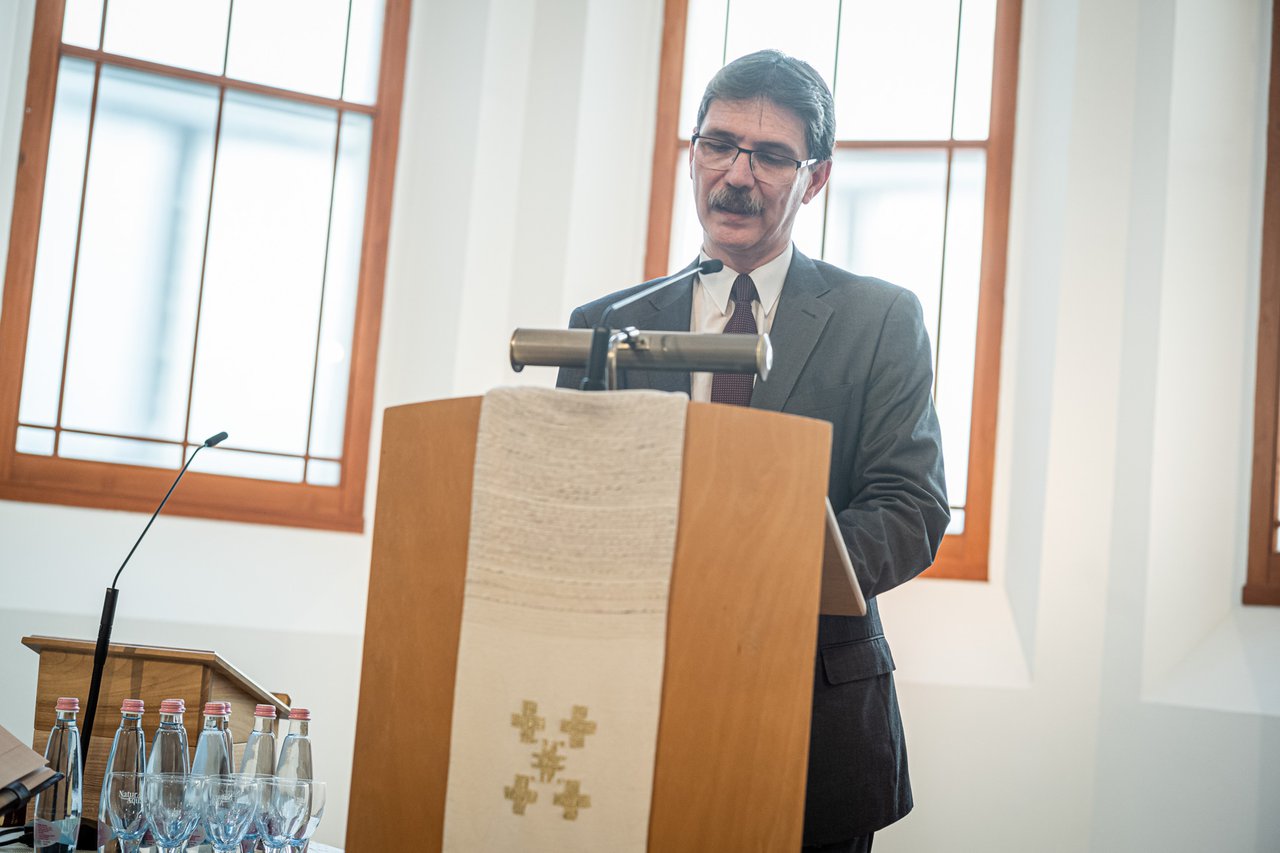
The Lord is the “author of the screenplay of our lives,” he continued, and while making plans is in our responsibility, we must humbly acknowledge that the final control over circumstances of our ministry is in God’s hands. "It is a problem if we stop acting because of the circumstances, instead of finding ways to do good under all circumstances and do what God has prepared for us to live by," Somogyi emphasized. It is important that we fulfil our mission faithfully, by recognizing what is good in the ever changing context, as the core of our calling remains the same: “Whoever can do good, shouldn’t miss the goal, and shouldn’t loose sight of anything that the Lord has entrusted to him. He doesn’t know any change, and he’s with us all the time.”
Rupture that explodes our life as usual
In the 1980s, a painting attributed to Rembrandt, The man with the golden helmet attracted crowds at a museum in Berlin, until it turned out that it was not the work of the famous painter, but created by somebody in his circle. From that moment on, the picture lost its high value and became an average work of art. Szabolcs Koppány Hajdú, pastor of the congregation in Lovasberény, illustrated with this example the fact that everything is worth according to the value we attribute to it. The dean of the presbytery stressed how painful it is to read the statistics showing the number of Christians in Europe declining rapidly, while it is continuously increasing in Latin America and Africa. “We are dwindling regardless of the virus situation. As for now, the image of the empty churches, we have been confronted with in recent months, is a nightmare from which we can wake up. At the same time it should also be a warning sign that urges us to reflect about the future of the Church," he said.
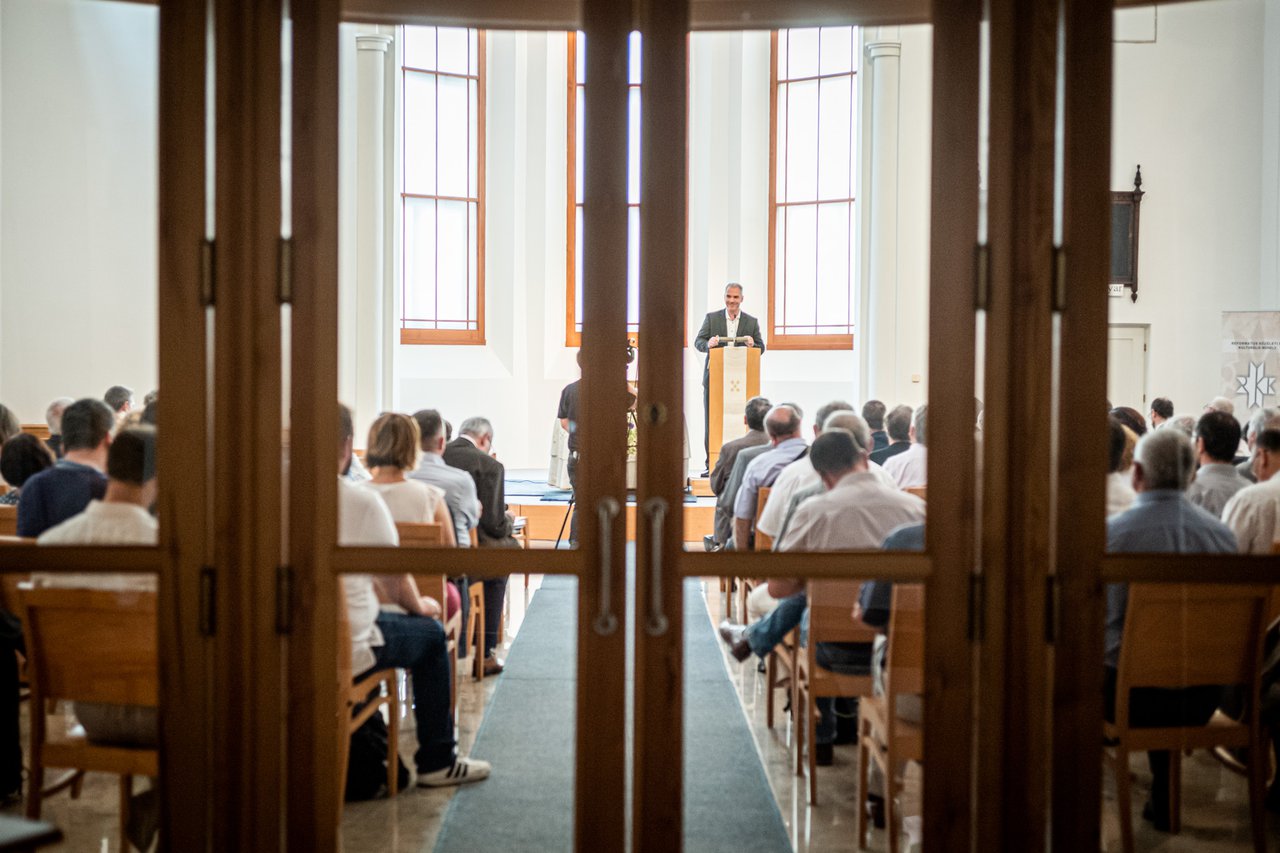
Which values and thoughts pastors are supposed to represent and communicate in an extraordinary situation? According to the dean, we have to make a clear difference between the parish as a legal entity and the “ecclesia” as a community gathered by the Spirit of God. Since ecclesia is a miracle arising from the essence of God, it can never be subject to the legal framework. Paying attention exclusively to the legal framework of the parish is misleading and leads to concerns about the material reality. From the point of view of the spiritual community, however, it is clear what makes the difference between ordinary and extraordinary times: "You have to breathe and live, and demonstrate that you have a message that no one else can share instead of you."
There is no preaching of the gospel without context, we need to know what is in the world - emphasized Hajdú, who sees our own weakness precisely in the fact that if we do not have a stable background supporting us, we have the tendency the close down and “lock ourselves in the church”. “In recent months, there has been sort of a rupture or outburst, our familiar “surrounding” opened up suddenly, and we have struggled for a new theological understanding of our ministry today”. The question emerged how can we serve when we ourselves become destitute?
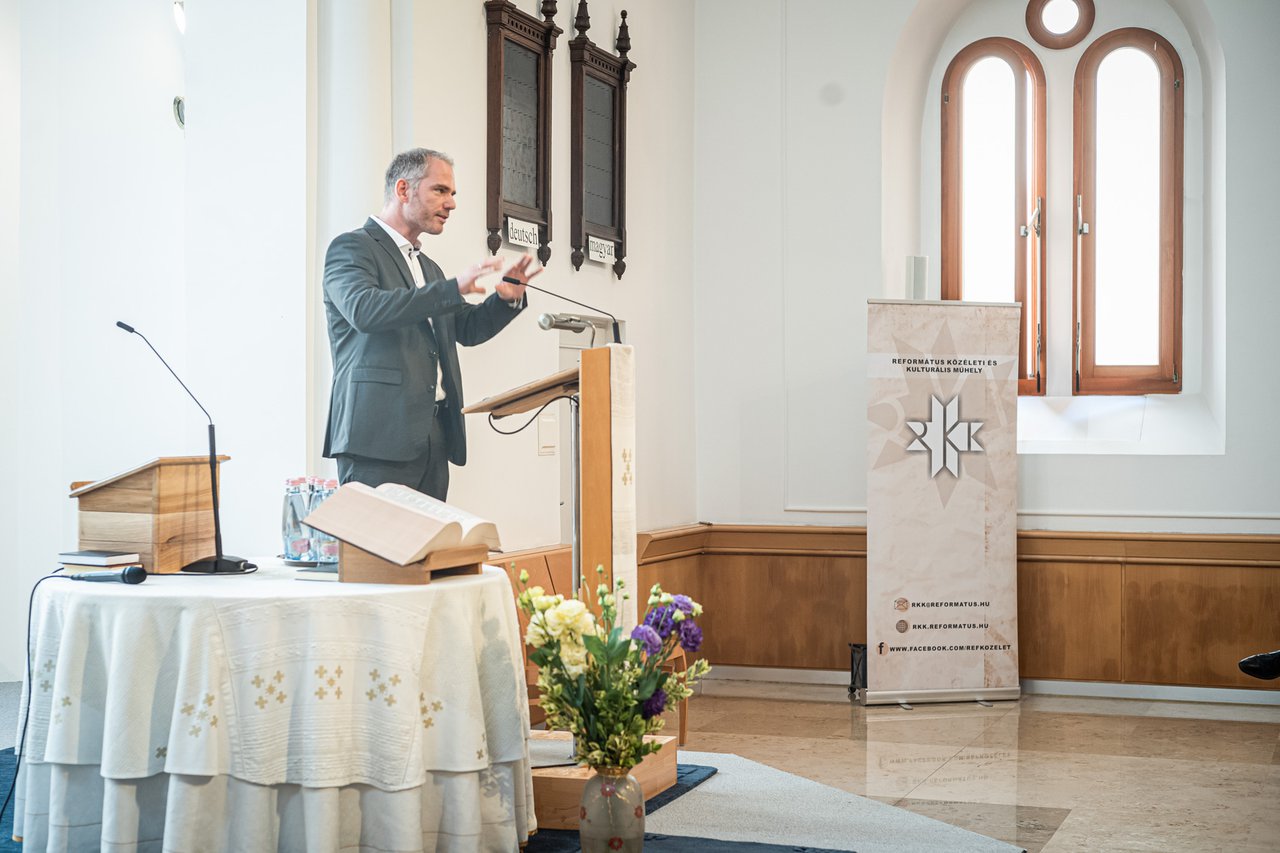
Where ecclesia, the living fellowship was in the focus, regardless of the emergency, communities and pastors found new ways of serving the communities. In addition, in recent months, pastors have been able to spend more time with family - in ways they may not have known for years. And this also reminds us that the role of the Church in education, social ministries, and healthcare might be diminished compared to earlier times, but family remained the foundation of all community and the place where we can visibly exemplify what it means to follow Christ today. “Are we able to live out in our family what we preach from the pulpit? If people see that patience, faithfulness, and honesty do not work in Christian families either, we cannot become credible. At the same time, if we can manage our family life properly, we can also fulfil our duty to serve.”
We cannot do it alone
Sándor Veres, the chief elder of the Danubian Reformed Church District, recalled that ten years ago, in the very same place he spoke about future generations seeking God on the Internet, but he did not think there would be a time when the church would be forced to go completely online. As he said, to understand our current situation, we also need to know our history, recall the example of those pastors and elders who were able to proclaim the Gospel of Christ resurrected and support the communities entrusted to them even after they suffered repressions and deportations in the 1950s and ’60s.
After the political changes in 1989, the number of church member increased, all at once, and people felt important to belong somewhere, but after that, the interest has vanished. While in 2001 1.6 million citizens declared themselves Reformed at the census, ten years later their number was half a million less. “The natural points of contact between people and the visible church have decreased, in many places in the villages there is no longer medical care, no school, and people continue to move to the cities. Many pastors are well aware that they are the last resident pastor in their congregations,” emphasized the lay president.
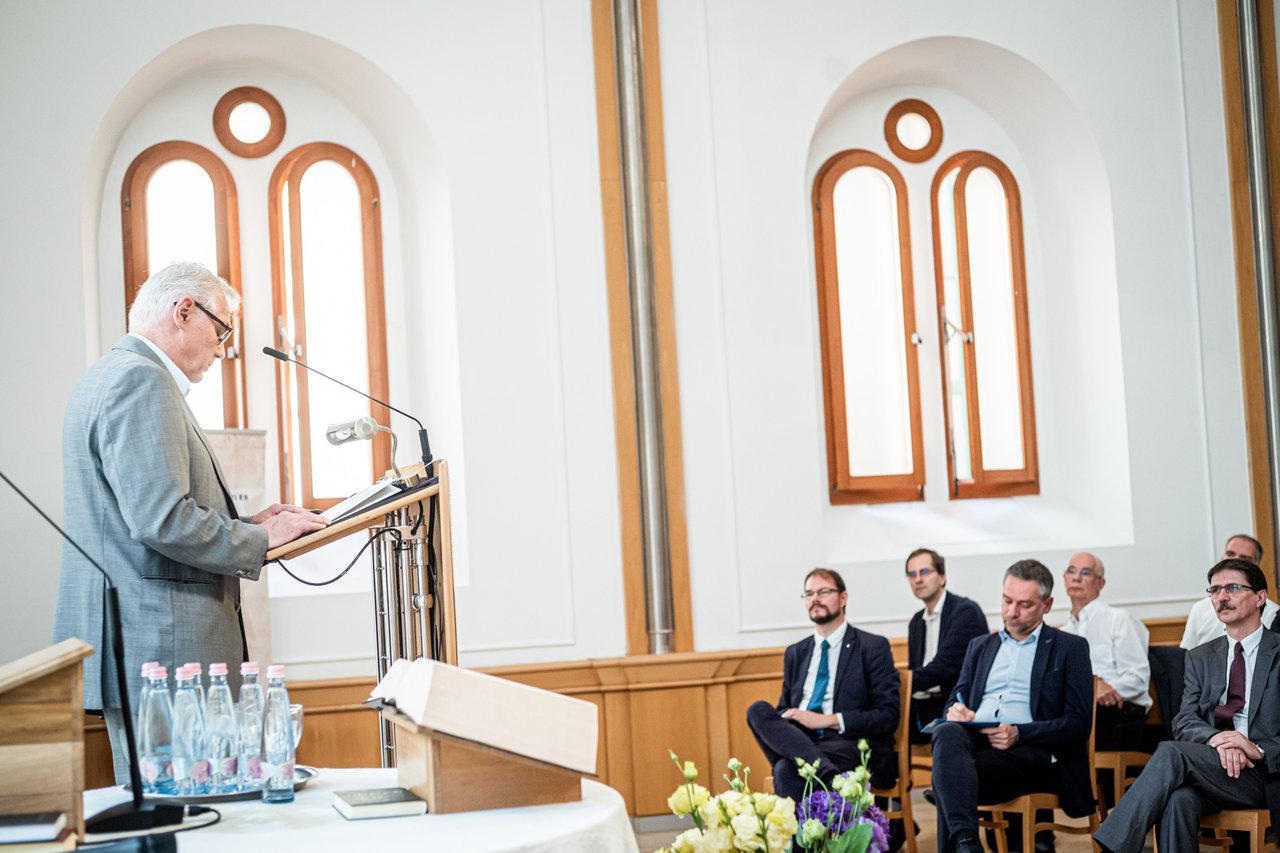
In the awareness of these processes, and the statistics, it is necessary to make concrete decisions and revisit the legal status of congregations, the re-dedication of pastors in such a way that they can be strengthened in their calling. “It is not our job to find final answers to the challenges, but we need to figure out how to address and reach the people of our days, so that we will be able to confess and testify against the heretical teachings and anti-religious sentiments in the situation of crisis,” he continued. It is also important to improve the living conditions, and adjust pastors’ salaries, but we need volunteering elders who pray together with pastors and co-organize the life of the community. We oftentimes experience the lack of acceptance and trust in lay members, although cooperation and joint responsibility is utterly necessary for the future of the church.”
Sándor Veres also shared his recent experience, that stable local churches and developing and energetic mission congregations have tackled the past few months successfully, but aging communities and unstable parishes have been in a difficult situation. “I ask our congregations to plan and strategize together how we can keep in our physical communities those whom don’t even know, yet joined our events online during the pandemics,” urged the chief elder of the District. „If members of the congregation take over joint responsibility in cooperation, they earned to be called church. We cannot do each other's job - only the joint ministry of the whole communnity can promise success."
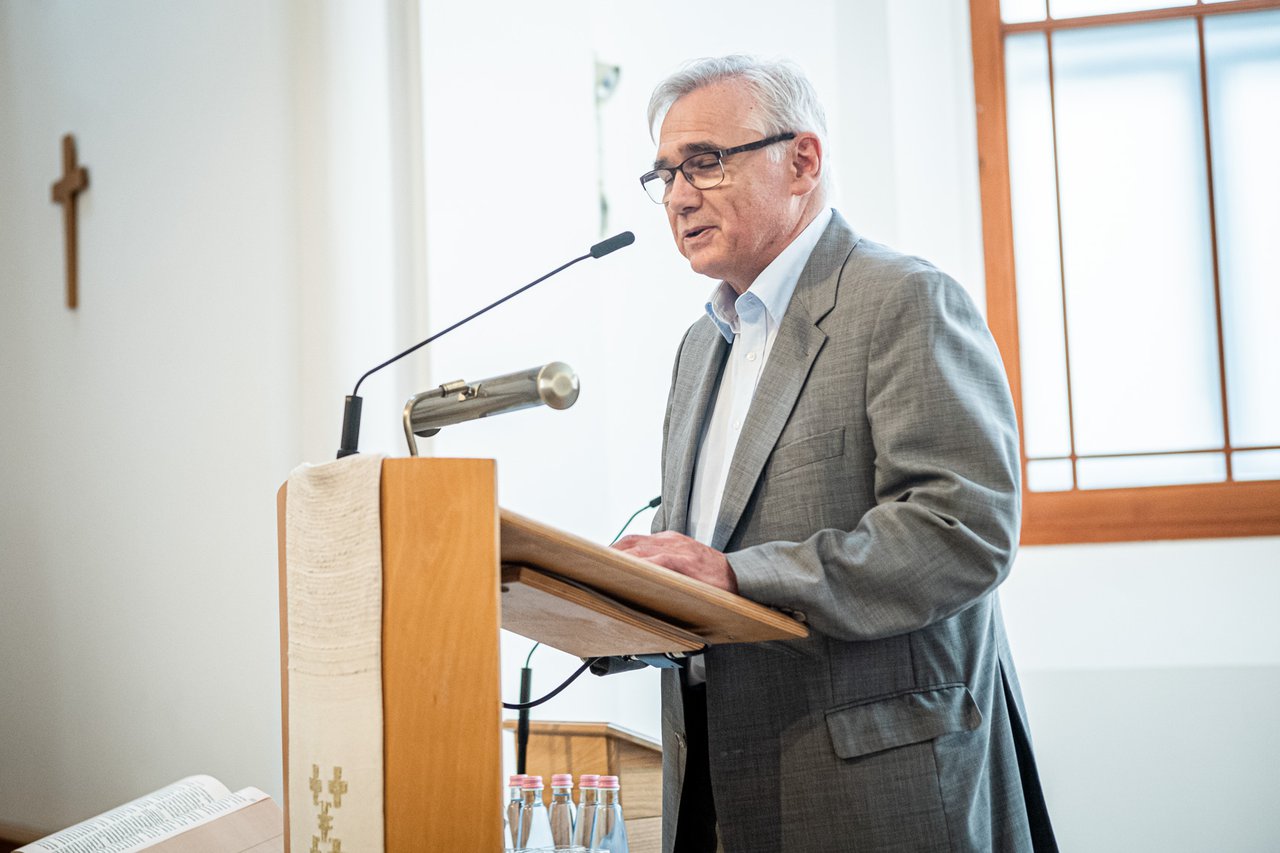
"Let us recognize: it is part of our ministry to prepare the whole of the community believers to serve," emphasized Veres. In this regard the epidemic revealed our mistakes and shortcomings, and as a result we have to reconsider how we recognize and honour our pastors, how we elect and train elders fit for the ministry, and at the same time how we can make a better use of online communication opportunities, concluded the lay president.
ETERNAL MESSAGE – FRESH EXPRESSIONS
"We feel stunned when we exactly know, feel and experience that God has taken our lives into his hands," said Zoltán Balog, senior pastor of the hosting congregation. In extraordinary situations, in some form, this can be a share experience of all of humanity. This includes shock and the feeling of being overwhelmed, but also the awareness that God can teach us through history, the actual events in the world - provided we measure them in the light of the word of God. "During the pandemic we have realized what we should always keep in mind: how vulnerable and incompetent we are," said the minister who is also the Prime-ministerial Commissioner for social affairs. He also emphasized that the hunger, the longing in the souls of many for authentic and clear messages hasn’t been as evident for a long time as it was in these days. “We need a message that unveils, uplifts, and liberates,” he said, adding that all this hast to start with us. “If we are not stunned and moved ourselves, we won’t find the way to reach the hearts of those who feel this hunger”.
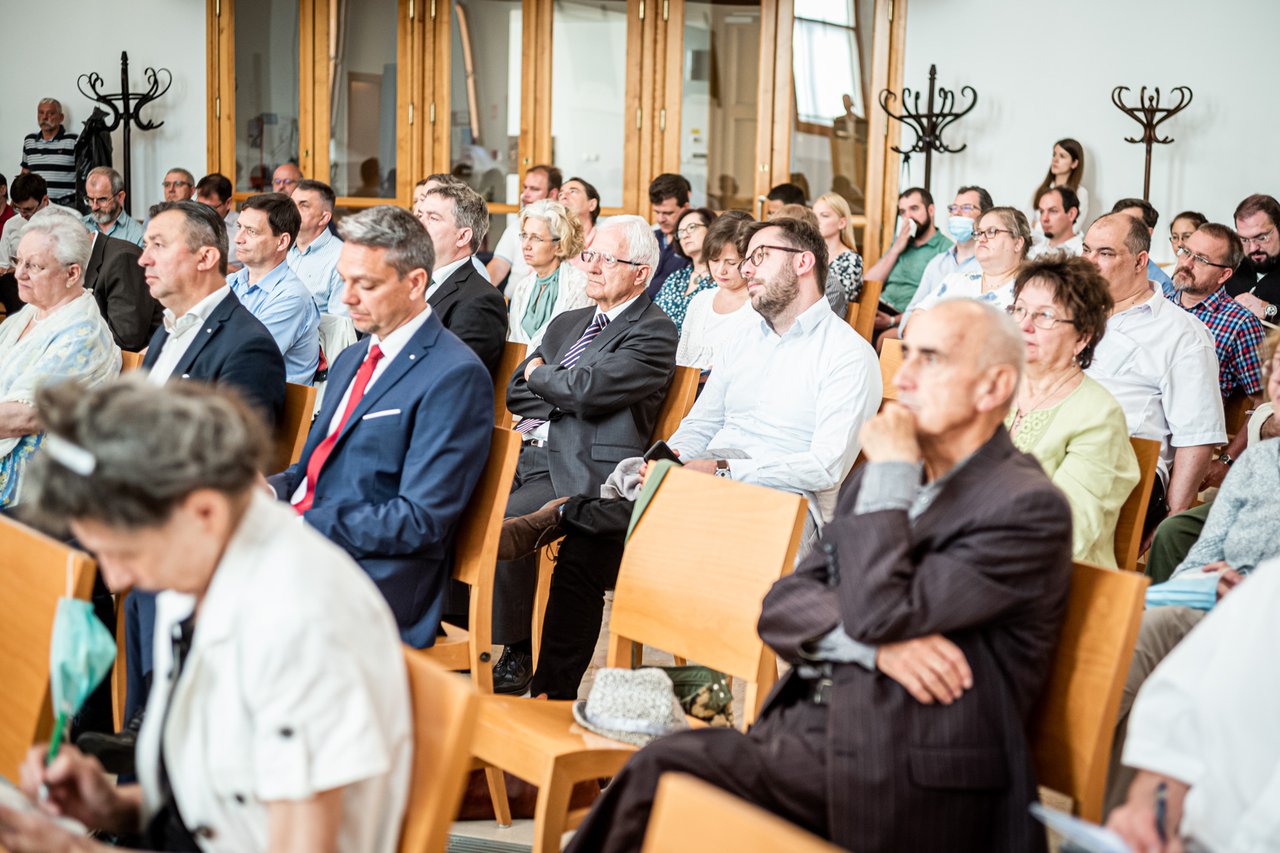
Our context is defined by the upcoming elections
Sharing his personal experience, Balog revealed that the emergency situation encouraged also members of his congregation to start using new ways of communication for community building. "We need to find the right balance in the use of new ways of communicating the gospel: our message is eternal, but we need to share it using new words that are worthy of the gospel," said Zoltán Balog. According to the pastor, the message can be preached in a relevant way even if we only see the shock, because the Gospel is the best answer to vulnerability: "It is better to be in the hands of God than in the hands of men," assured Balog.
“We have to discern together what is entrusted to us, understand what the core message, the “text” is, as the context will always be obvious and reflected in the way we live. Our responsibility is that the word of God meets the word,” he continued, adding that it must also be clearly said that our current context is determined by the upcoming election of the office bearers of the church, which provides an opportunity for redefining our ways. Election requires peaceful relationship among the Church districts and a fraternal atmosphere, though. The social context is defined by the fragility and the vulnerability of the ministry of pastors, which requires accompaniment of their professional work and external security - the state can also help in this, emphasized the Balog. As a good example he referred to new government initiative of doubling the salary supplements of pastors, priests and rabbis serving in small municipalities.
Govt to Double Support for Pastors in Hungarian Communities across Borders
The government will double the salary supplements of pastors and priests serving in Hungarian communities across the borders, Zoltan Balog, the commissioner for social affairs, said on Thursday.
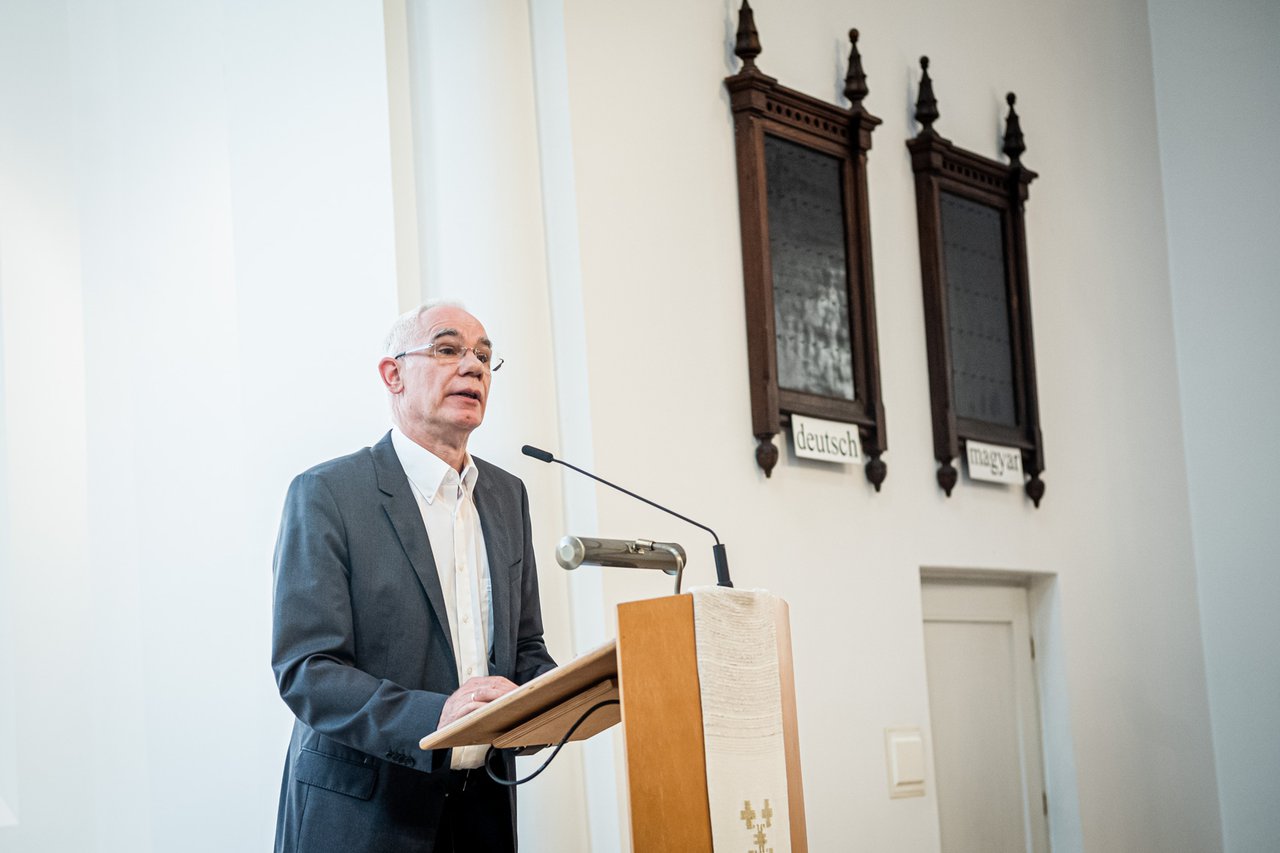
"Still, we have to critically raise the question of how we use external financial support," he warned. The goal is that the individual congregations shall nor be isolated, and exist like islands, but the whole of the church will live in true community. Later is the national church itself. “We shouldn’t give up on this idea, and out of the islands a continent should emerge,” challenged the minister the audience. As he said, the long-term goal is to become a self-sustaining and financially independent as a church and keep in mind that there is no ‘beatific’ politics that could offer salvation. No, it is the church’s task to speak about salvation, “and we need to do this with more autonomy than before. Neither smart political distancing, nor self-serving, offended bravado and blatancy can be the right solution. Self-conscious, critical cooperation with the state is needed. Acknowledging what is good and admonishing prophetically what is wrong. But all this starts with self-examination,” Balog concluded, confirming the highly citical and important role of lay members and elders, whose witness in words and deeds is an opportunity to reach out beyond the walls of the Church.